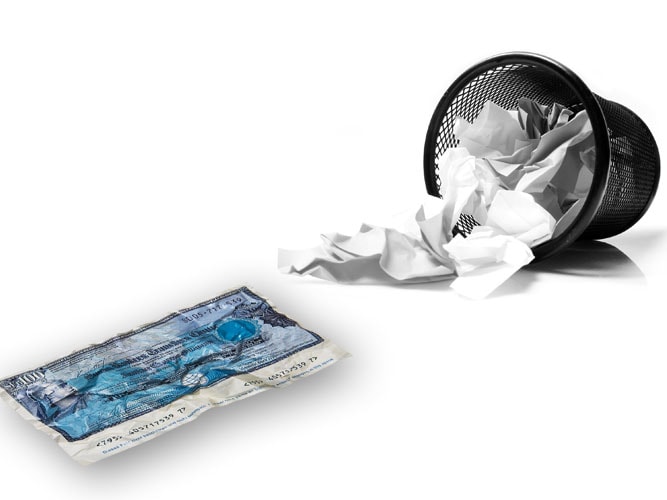
Chequed Out
Travellers cheques, once a staple in the wallets of tourists, are making a silent exit
Travellers cheques (TCs) date back to the end of the 19th century with American Express and Thomas Cook as the first issuers. Thomas Cook had issued a precursor to the TC, Cook’s Circular Note, in 1874 in New York. But the world’s first traveller’s cheque was issued by American Express in 1891.
The industry grew in pace with the travel industry. More issuers (mostly banks) joined the fray, till there were over 1,000 issuers in the early 1980s.
The need was clear: They were safer than carrying cash while travelling. They could easily be replaced if lost or stolen. Most hotels accepted them as payment as long as you were staying with them, as did superstores.
Then began a period of consolidation, and the number of players reduced to barely 10, of which American Express, Thomas Cook and Citibank remain some of the major players.
Now even they seem to be on the way out.
Travel through Europe, and you will find that most hotels and superstores refuse TCs. Even just a year ago, you could pay with your Euro-denominated TCs at no discount (without paying commission). But now customers are politely told to approach the banks instead.
Walk to a bank, and the person at the counter will tell you that they do not accept TCs any more. Not American Express TCs. Nor Thomas Cook. Not even Citibank.
While in Germany, this correspondent approached ReiseBank (translated it means ‘Travel Bank’, located at main railway stations and airports). They said that converting Euro denominated TCs into Euros would involve a commission of 6.5 percent! Normally, Euro denominated TCs get converted into Euros at face value.
So why has the environment for TCs changed? American Express, Thomas Cook and Citibank did not respond to our emails for clarifications on this subject.
Get chatty with the person at Reisebank — with which American Express confirms that it has a special relationship — and the person will tell you that as American Express does not have an office which can redeem the TCs the very same day for any bank, no bank wants to take the risk (of trusting ‘instruments’ of other agencies given the recent payment crisis that many financial institutes suffered). ReiseBank discounts TCs of Citibank and Thomas Cook as well.
The beneficiaries from this mess are Visa and MasterCard. TCs block your funds because you pay first, encash later. But credit cards give you the freedom to spend first and pay later. Debit cards allow you to earn interest while your money lies in the savings account.
Companies issuing TCs benefitted from an upfront commission at the time of issuing them to customers and an interest-free float of money. Now they appear to be benefiting from a third fee as well — discounts on the face value at the time of encashment. Unless, of course, the discounts are collected by the likes of ReiseBank.
This situation becomes curiouser and curiouser when one comes back to India and tries to encash the TCs into one’s own bank account — the very same bank from which they were purchased. Normally (at least till last year) banks would redeem TCs within a day (that was when the local cash you got on foreign-currency TCs was higher than that on foreign currency). Occasionally, it would take three-four days. But this time, the bank gives a written communication that it would take 21 days to clear a TC. That allows it to earn a lot more, by way of interest.
A query sent to the Reserve Bank of India too elicited no response. So will the guardians of the TC speak up lest it be buried without an elegy?
(This story appears in the 30 November, -0001 issue of Forbes India. To visit our Archives, click here.)





